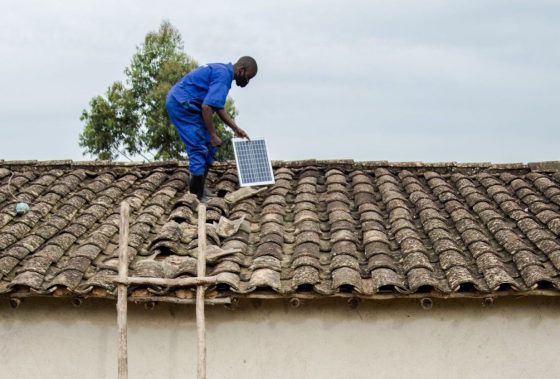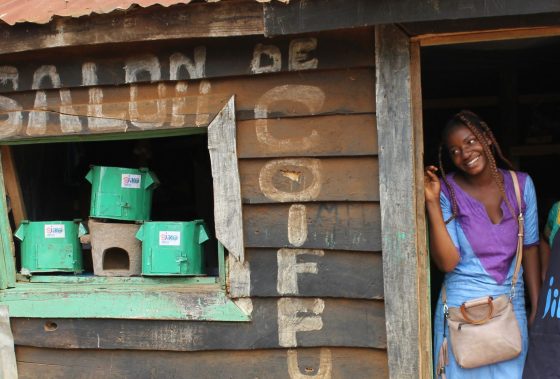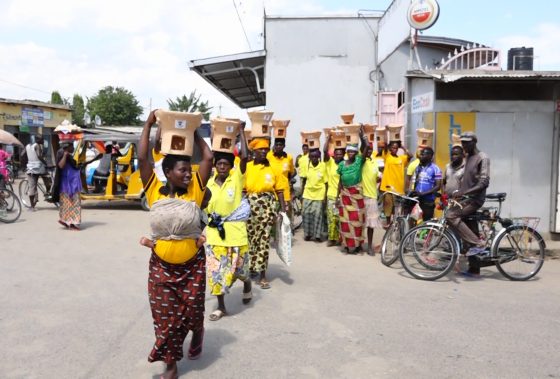
Madagascar
In Madagascar, deforestation is a big issue: In 2019, 99% of the population used firewood and charcoal for cooking, while only 2% of the households were using improved stoves. This is one reason why hundreds of thousands of hectares of forest area disappear every year. As a result, the country’s biodiversity suffers. At the same time, respiratory infections are caused by the combustion of solid biomass. All this makes Madagascar a highly relevant target country for improved cookstove interventions. EnDev’s implementation partner ADES strengthens the local cookstove production capacities, offering improved stoves for households as well as social institutions and productive use.
Technologies used in this project
- Improved cookstoves
Country data
- People with access to modern cooking energy: 682,993*
- MSME´s with access to modern energy services: 4,986*
- SIs with access to modern energy services: 628*
- *Achievements until December 2024
Approach
The project strategy is to develop an expanded local production capacity for improved cookstoves, and to ensure a sustainable market in urban and peri-urban areas in Madagascar. EnDev collaborates with the Swiss-Malagasy non-governmental organisation ADES (ADES), which has been active in Madagascar for 24 years, promoting energy-efficient cooking solutions, reforestation, and education. ADES manufactures solar cookers and improved cookstoves, reducing fuel consumption by 50-70% and easing pressure on forest resources. With its own production facilities and fifteen distribution centres, ADES ensures wide-reaching impact across Madagascar, integrating sustainability and community engagement into its mission.
In 2024, ADES operated with great success under EnDev in Madagascar, achieving multiple milestones in all areas of activity. ADES has increased the partners in reforestation
and the number of trees planted, and families supported. Both production and sales reached a new all-time high. This is also evident in the expansion of ADES’ distribution network, with the number of permanent employees increasing from 287 to 300. Additionally, 280 resellers generated an income at the end of 2024. A preliminary analysis revealed that the income from the sales accounted for more than 50%
of their total earnings, highlighting the economic impact of the initiative. The educational programs renewed the government cooperation for “Green Schools” and increased the impact ADES has on students and teachers.
By the end of 2024, ADES had strengthened its internal capacities and operative standards, leading to the increased production and of high-quality improved cookstoves for households and small enterprises. “We can attest to the effectiveness of ADES’ improved stoves in preserving the environment: they reduce the amount of charcoal used for cooking.” Mme Henintsoa, Directrice du Centre Mahadera, Antsirabe
Ensuring EnDev’s activities reached vulnerable groups remained a challenge due to the lack of reliable data. ADES identified regional remoteness and low average income as key poverty indicators. As a result, targeted efforts were intensified in these areas, ensuring a significant portion of cookstove sales benefited the most disadvantaged regions. Beyond household sales, ADES also supplies improved cookstoves to micro-, small-, and medium-sized enterprises, particularly street kitchens known as “gargottes.”
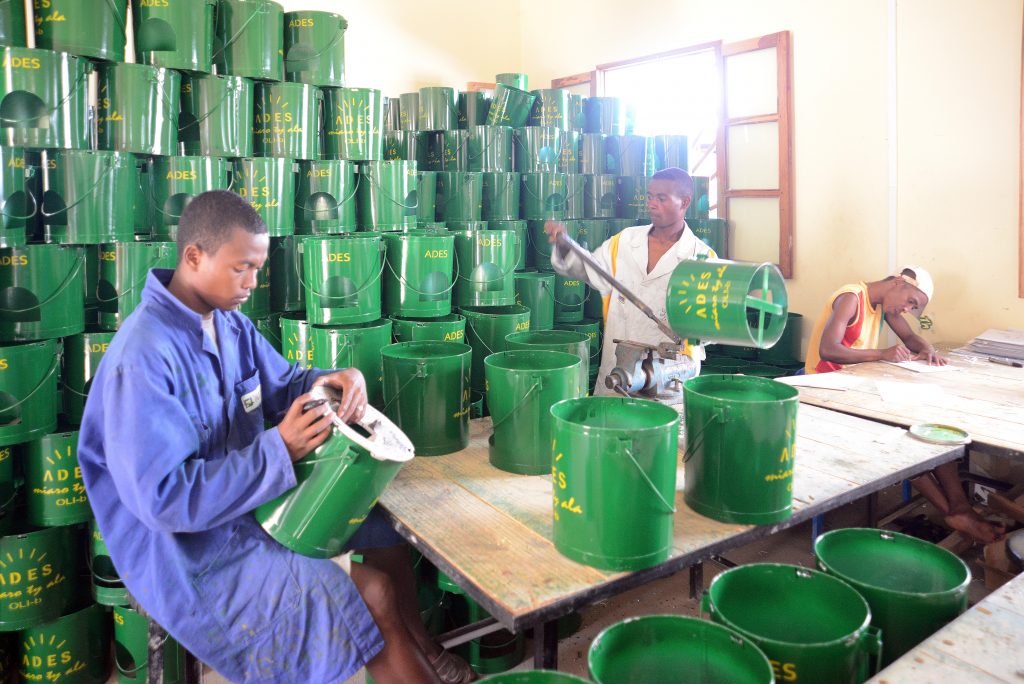
Impacts
“Three of us cook lunch for over 500 children.
Before the kitchen was rebuilt, we needed 200 kg of wood per day and had to cook for seven hours. With the new kitchen, it is only 30 kg of wood per day and the rice is ready in three hours in the BoÎte Miraculeuse! There is much less smoke, we are very happy.”
– Cook, Serena, Ecole des Saphir
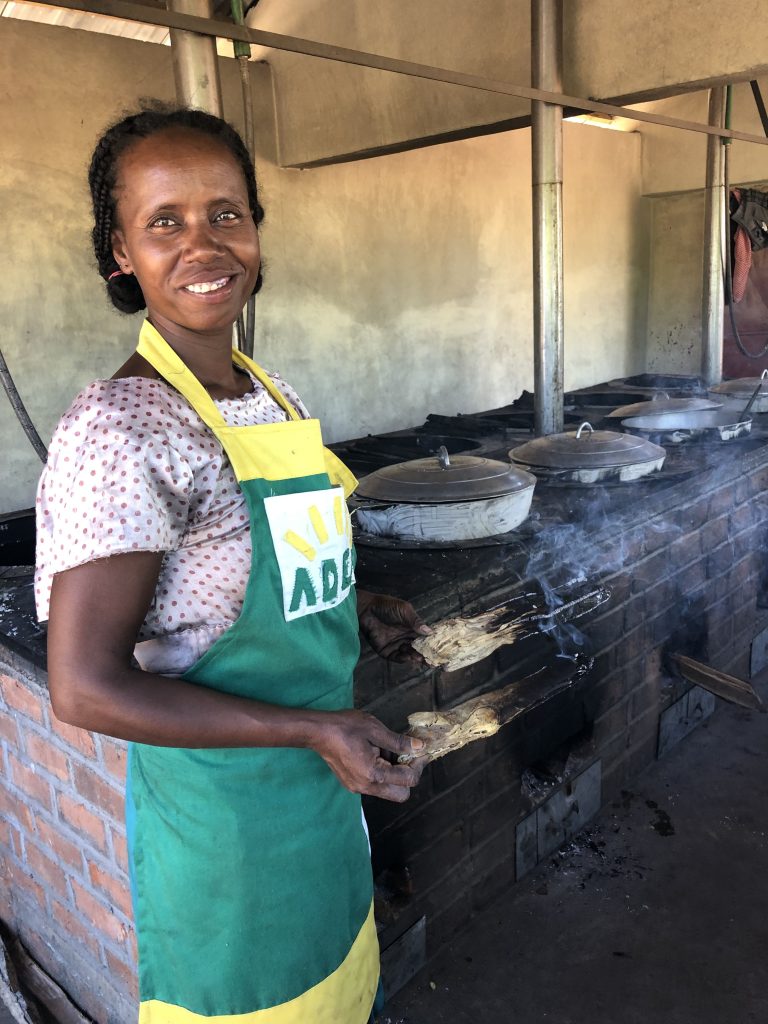
To get more impressions, see EnDev’s implementation partner ADES’ videos on the approach, on cookstove production, on environmental education and reforestation.
